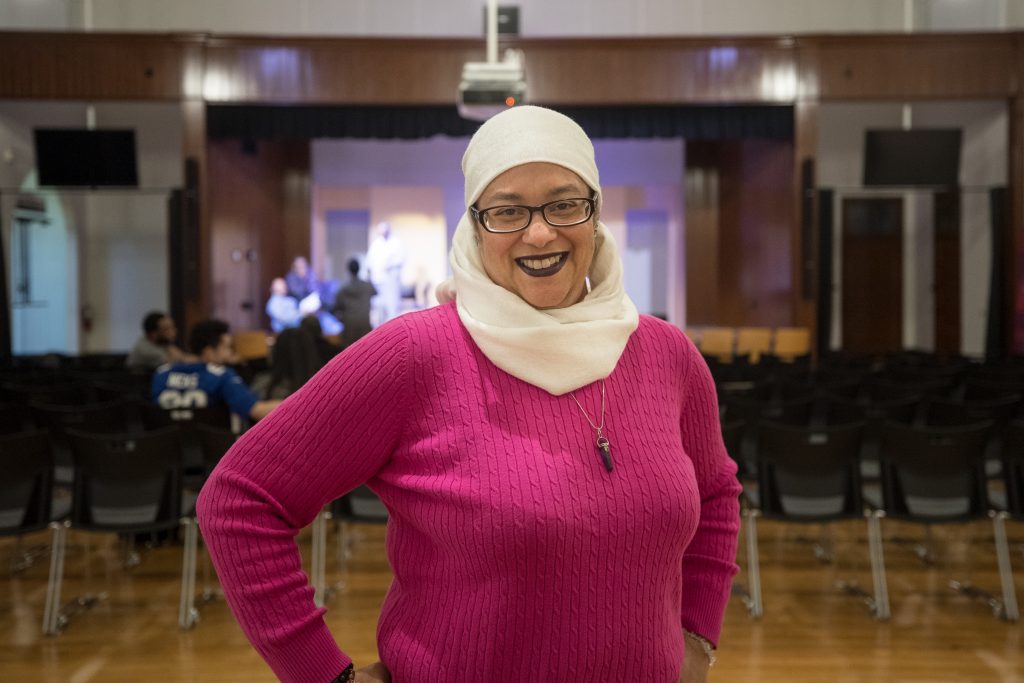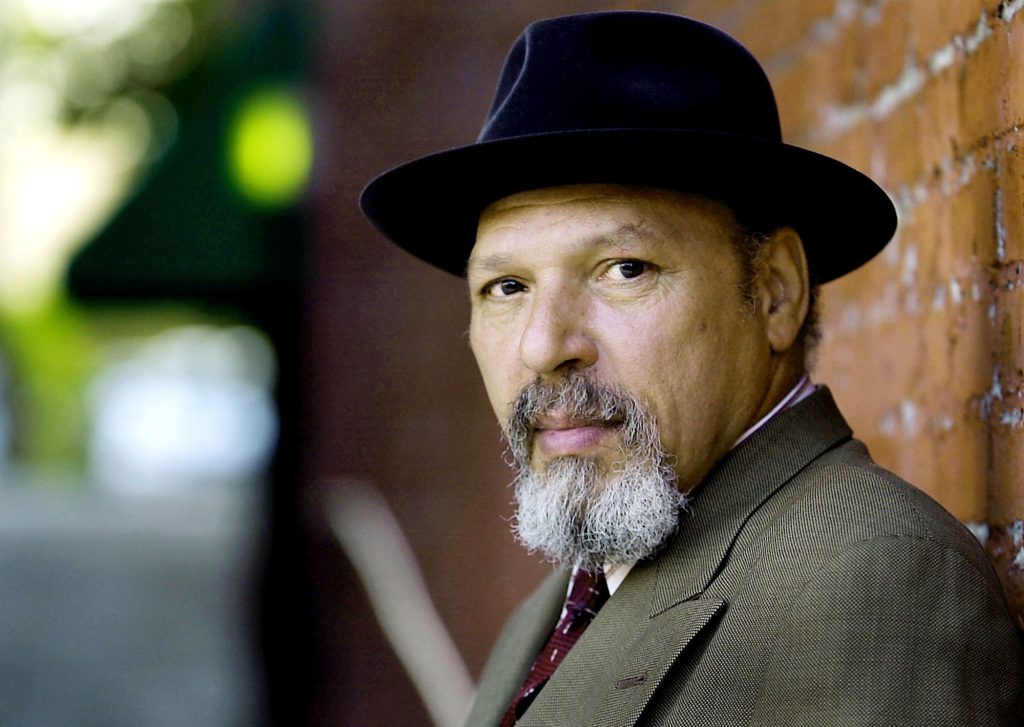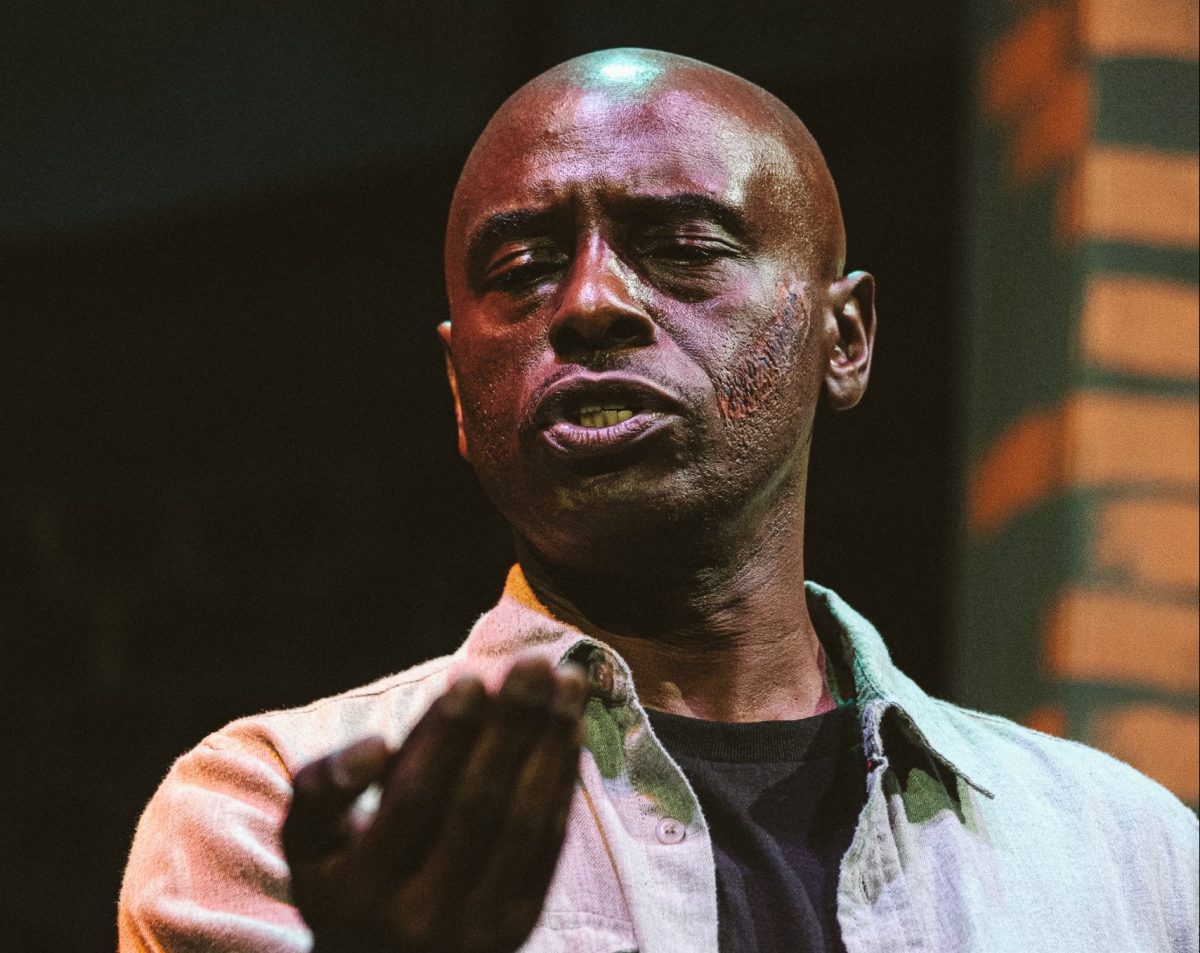When the final showing of King Hedley II wraps at the Jefferson School African American Heritage Center, the Charlottesville Players Guild will have strode through the entire 20th century on one stage. Dozens of actors will have stepped into the lives of characters generations apart, some even reprising their roles across multiple plays. And audiences will have been swept up in a rich world of Black history, music, folklore, and drama from the pen of legendary playwright August Wilson.
King Hedley II runs Thursdays through Sundays until October 22, and is directed by Darnell Lamont Walker and Jessica Harris. Hedley, the story of a once-imprisoned man who will do anything to gather enough money to start a video store, is a difficult show which, like any Wilson play, demands a great deal from its cast as the story’s tension ratchets tighter and tighter until the end. Hedley marks not just the end of a season full of Wilson plays, including Seven Guitars and Ma Rainey’s Black Bottom, but seven years of productions that cover the entirety of Wilson’s 10-play American Century Cycle. The completion of the Cycle is an enormous achievement, not only for a Charlottesville cultural organization, but for any arts or theater institution—as Leslie Scott-Jones puts it, “as far as we know, no other Black history and culture organization, and only 12 professional institutions,” have finished Wilson’s famous cycle of plays.
“We need to celebrate this achievement,” says Scott-Jones, who is the Charlottesville Players Guild’s artistic director and the Jefferson School’s curator of public programs, learning and engagement. “We should recognize that as Black artists, what we do in theatrical practice has very real and important ties to Wilson. We need to talk about it.”
Following King Hedley II, the CPG will host a weeklong event, Wilsonian Soldiers: An August Wilson Symposium, from October 23 to 28, which will feature panel discussions and master classes by professionals with an intimate understanding of Wilson’s work. They’ll lead conversations about the men and women of his oeuvre, the cadence and lyricism of his dialogue, and his plays’ music and spirituality. The symposium will also include a performance of the playwright’s memoir, How I Learned What I Learned.

Wilson’s Century Cycle, also known as the Pittsburgh Cycle in reference to the plays’ frequent setting in the city’s Hill District, explores and examines Black history and culture, spirituality, love, pain, and so much more through the lives of blues singers, cab drivers, former Negro League players, husbands, mothers, brothers and sisters, neighbors, and matriarchs. Wilson’s stories are as grounded as siblings arguing over a family heirloom, yet they can also entertain the fantastic, such as with the recurring character of Aunt Ester, who King Hedley II says is over 300 years old.
Scott-Jones has performed in three of the Cycle’s productions—as Rose in Fences, Louise in Seven Guitars, and Ma Rainey in Ma Rainey’s Black Bottom—and says Wilson intended in every way for his plays to be exhausting, emotionally and physically, for the actors.
“In order to do Wilson, you have to have a strong constitution,” she says. “He was writing the Black lived experience, and through the 20th century, the times and the things he was writing about were not easy. Every single play has some sort of migration story. … Every single play has somebody that’s in trouble with the law. Every single play has a death. Every single play has some sort of relationship that is in turmoil. And all of those things are compounded by, you know, [being] Black and living in America.”
“It’s very real, it’s very nuanced,” says Aiyana Marcus, a Cycle actor and playwright. “He does not shy away from the complexity that is Black culture. There’s so many nuances and layers of spiritual meanings, economic and political, cultural layers, things that seem like dichotomies. … The secrets that we keep and the secrets that we want to tell.”
“Through August Wilson’s plays, he inadvertently established his community through other individuals,” says Nicholas Berkley, who plays Stool Pigeon in King Hedley II. “When you see these other people participate in plays, we grow close as a cast, and we become family.”
Berkley began performing with the CPG as Hedley (King’s father) in Seven Guitars, and considers Wilson a storyteller whose writing is a form of archiving. “Wilson’s work is an excellent chronicle that should remind those of African American descent to remember where they came from, look at where they are, and appreciate that space.”
One of the most distinctive elements of a Wilson play is his dialogue, crafted to roll off the tongue in an effortless, almost musical pattern. Wilson was as much a playwright as he was a social historian. The two-time Pulitzer Prize winner, Tony winner, and posthumous Oscar contender spent his life listening to the people around him—on the streets, in bars, in cigar shops—recording their unique phrasings and the patterns of their speech, and using that language to weave his distinctive scripts.
“It is an honor to do Wilson’s work—it is not easy,” says Marcus. “Just the complexity of the work, and the cadence of language. … There is something about getting my mouth around the rhythms of Wilson that is a whole other process in and of itself.”

Marcus, who wrote She Echoes on the Vine, which was also performed at Jefferson School by the CPG, studied theater as an undergrad, and first met Scott-Jones while auditioning for a play that she was directing at Live Arts. That led to Marcus being cast as Bernice in the fall 2019 production of The Piano Lesson, and later as Black Mary in Gem of the Ocean.
“You can feel the weight of the historical context,” says Marcus about Wilson’s women. “Women did have a certain place that you can feel. A certain level of subservience, but also there is a magnetic presence that they have. They are still very highly valued and respected by the men and other folks in their community. But the way that they can use wisdom in the way that they want to get their point across, it’s not always in the loudest way or the most obvious way.”
King Hedley II, written in 1999 and set in the Reagan ’80s, speaks directly to the weight of history, the value of learning the past, and changing one’s circumstances for the better. Each character seeks something new in their lives, but are struck in painful ways by the legacies of people they love or the city they live in.
“[Tonya] is a woman who is looking for the confidence in her relationship, and trying to, a lot of times, reel her husband back in from making certain—probably not the best—choices in life,” says Cadessa Davis, who plays the title character’s wife in King Hedley II.
In her second play with the Jefferson School, Davis performs her role with range. Tonya’s restraint gives way to incredulity and eventually an explosive monologue that exposes both a vulnerability and fear as well as a frustration and determination to be heard.
“She can say what she wants to say to [King],” says Davis, “but that doesn’t mean he’s going to follow through with listening to her.”
Davis didn’t start acting until 2018; before performing in the Century Cycle, she had stuck to musicals. For King Hedley II, she specifically auditioned for Tonya, in whom she saw a certain defiance and an effort by the character to put her foot down.
“She is truly fighting for her marriage and for her husband to love her. She’s a total 180 from the other character that I played, Risa in Two Trains [Running],” she says. “Two different characters, but totally a lot of fun to play both, and explore my range.”

A safe, predominantly Black rehearsal space to explore that range, via the work of a celebrated Black playwright, has been a powerful gift for the actors who have performed the Cycle at the Jefferson School.
“When you, as a person, feel fully seen, feel completely able to be who you are … absolutely, you’re going to be more willing to be vulnerable in front of people,” says Scott-Jones. “And that’s what acting is all about: being vulnerable.”
“There is a freedom there,” says Marcus. “Especially for a number of us, our experience in theater has been in predominantly white spaces, not even necessarily in predominantly diverse spaces. And understanding the context of what it’s like to live in Charlottesville, it was very, very freeing.”
As Scott-Jones and Andrea Douglas, executive director of the Jefferson School, shepherd their joint project to its conclusion, they hope the public will attend the accompanying symposium to learn more about the power of Wilson’s work.
“The classes and the conversations that we’re having apply to not just theater, they apply to literature, they apply to music, they apply to history and social studies,” says Scott-Jones. “Anybody who is involved in the arts at all should absolutely be present for some of these conversations. It’s not just talking about what we’ve done, it’s talking about the work of being a theatrical artist, being an artist, on a global level.”
“Just like Shakespeare,” she says, Wilson’s “work is absolutely transferable to anybody who watches it.”
